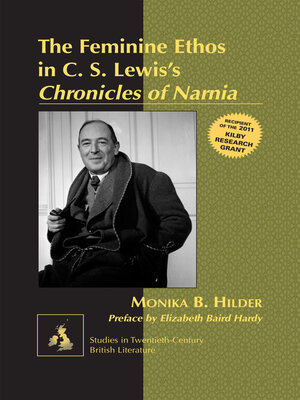The Feminine Ethos in C. S. Lewisʼs «Chronicles of Narnia»
ebook ∣ Preface by Elizabeth Baird Hardy · Studies In Twentieth-century British Literature
By Karen Marguerite Radell

Sign up to save your library
With an OverDrive account, you can save your favorite libraries for at-a-glance information about availability. Find out more about OverDrive accounts.
Find this title in Libby, the library reading app by OverDrive.



Search for a digital library with this title
Title found at these libraries:
| Library Name | Distance |
|---|---|
| Loading... |
C. S. Lewis, fantasy novelist, literary scholar, and Christian apologist, is one of the most original and well-known literary figures of the twentieth century. As one who stood at the crossroads of Edwardian and modern thinking, he is often read as a sexist or even misogynistic man of his time, but this fresh rereading assesses Lewis as a prescient thinker who transformed typical Western gender paradigms. The Feminine Ethos in C. S. Lewis's 'Chronicles of Narnia' proposes that Lewis's highly nuanced metaphorical view of gender relations has been misunderstood precisely because it challenges Western chauvinist assumptions on sex and gender. Instead of perpetuating sexism, Lewis subverts the culturally inherited chauvinism of «masculine» classical heroism with the biblically inspired vision of a surprisingly «feminine» spiritual heroism. His view that we are all «feminine» in relation to the «masculine» God – a theological feminism that crosses gender lines – means that qualities we tend to consider to be feminine, such as humility, are the qualities essential to being fully human. This book's theoretical framework is Lewis's own, grounded in his view of biblical thinking, as he was informed by writers such as Milton, Wordsworth, and George MacDonald, and in terms of the uniquely progressive implications for twentieth-first century cultural studies. This highly insightful and entertaining study of theological feminism in Lewis's Chronicles of Narnia will be compelling for anyone interested in children's and fantasy literature, Inklings scholarship, gender discourse, ethical and spiritual discourse, literature and theology, and cultural studies in general.







